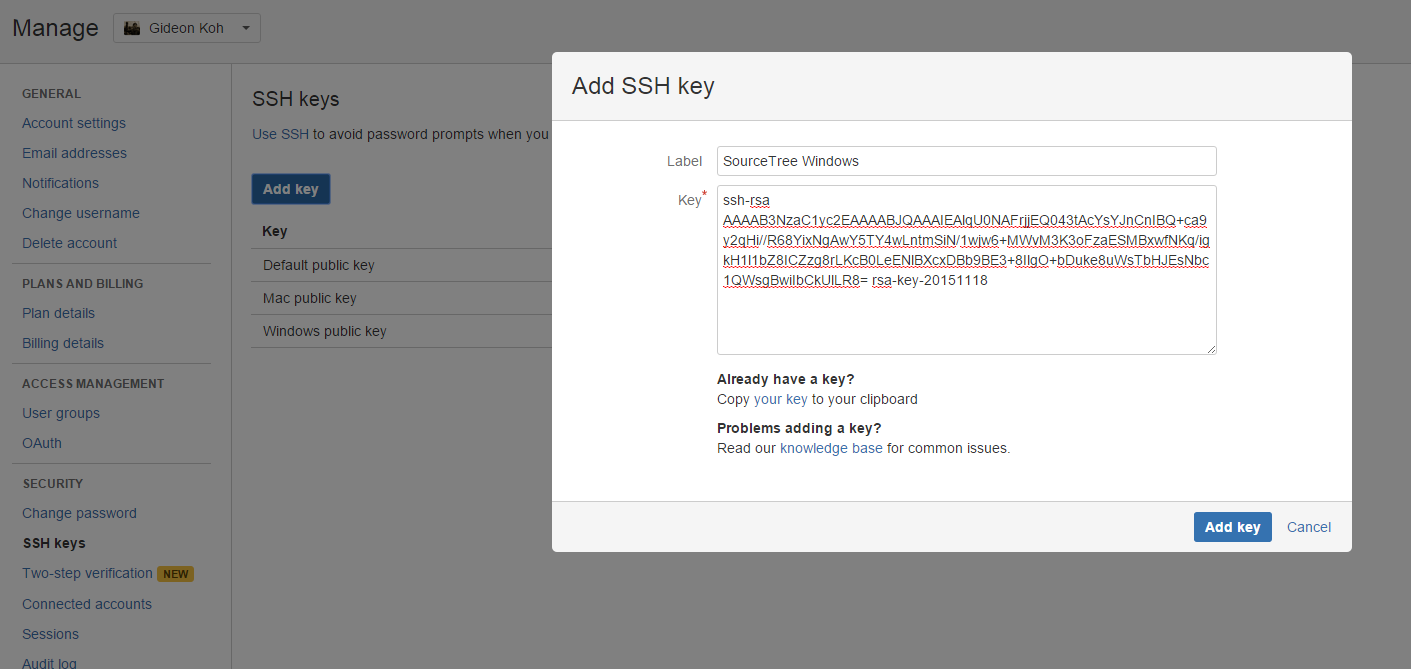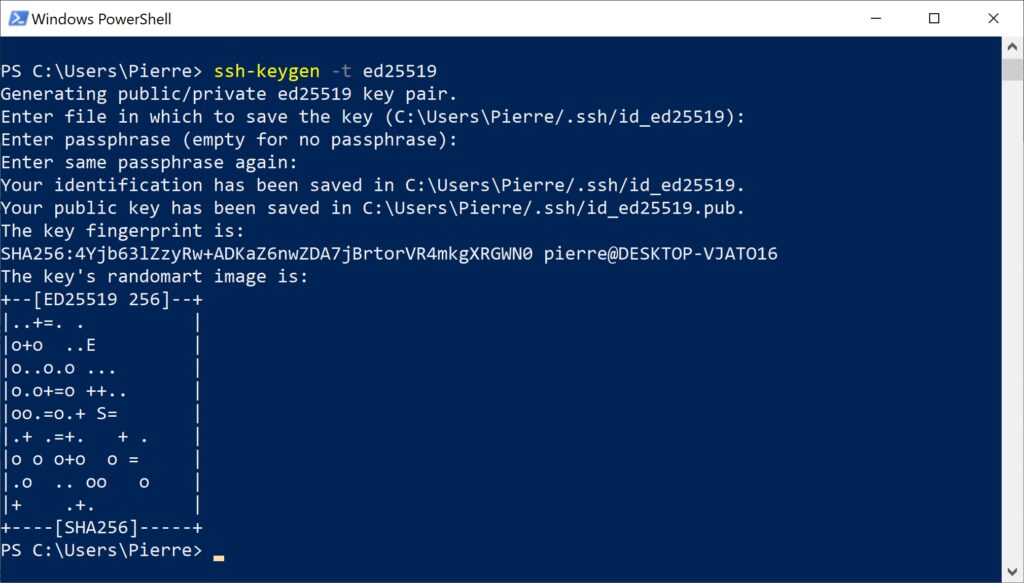


This installs the public ssh key to the remote system. Next, you will be prompted for the remote user's password. The key fingerprint will be displayed and you will be prompted if you want to continue connecting to the remote host. Next, we will generate an SSH key pair using the ssh-keygen command: ssh-keygen So we will switch to the admin user on the host machine. Once the users have been created, we will generate an SSH key pair ( private and public keys) on the host machine and then copy them to the two SSH servers. Next, we will log in to the host machine where we will generate SSH Keys and later copy the public key to SSHServer1 and SSHServer2 in order to enable passwordless authentication. SSHServer2 - Create a normal user named bob.SSHServer1 - Create a normal user named jack.HostMachine - Create a normal user named admin.To demonstrate how the ssh-copy-id tool is used, we are going to have the following lab setup. In order to see how the ssh-copy-id command works, you need a client machine on which the ssh keys will the generated and a remote host or servers on which the keys will be copied.Ĭheck out the out lab setup below. If the person attempting to connect to the remote system does not have the private key, the connection attempt fails. The challenge-response takes place without any user interaction and only the holder of the private key is granted access to the remote server. The remote server receives the decrypted message and grants the client access. Upon receiving the request, the client system uses the private key to decrypt the challenge message and sends it back to the server. The remote SSH server detects that the connection is being requested and sends an encrypted challenge request back to the client using the shared public key information. A challenge response is then initiated to complete the connection. No multiple copies should be made and distributed to other users as this could lead to data breaches.ĭuring public key authentication, a user or process sends a connection request using an SSH client. Again, the private key, as the name infers, should be stored in a secret and confidential manner.

Only the user of the private key that corresponds to the public key can successfully authenticate to the remote host. The key should be kept confidential and only remain on the host machine of the user connecting to the remote machine. It decrypts messages created by the public key. Private Key: The private key provides proof of a user's identity.On the other hand, the public key can be shared across multiple servers without an issue. When generated, it is accompanied by a private key which should only be known to the owner. The public key checks the legitimacy of a digital signature and is used by both the host and the remote system to encrypt a message. This is a file that contains a list of all authorized public keys. Public key: The public key is copied and saved in the authorized_keys file on the remote machine.In SSH Public key authentication, a user generates an SSH key pair that comprises a set of two cryptographic keys:
Ssh copy id to remote install#
Sudo dnf install openssh-clients Understanding SSH Public Key Authentication RHEL/ Fedora/ CentOS/ Rocky Linux/ Almalinux However, if the OpenSSH client package is not installed, install it as follows.ĭebian / Ubuntu sudo apt install openssh-client InstallationĪs mentioned earlier, the ssh-copy-id command is bundled in the OpenSSH package which comes pre-installed in most Linux distributions. Where user is the username of the user on the remote host and host-ip is the IP address of the remote server. The ssh copy id command takes the following syntax: ssh-copy-id It is also beneficial when working with automated tools such as Ansible or shell scripts. Only the user with the private key can access the remote machine on which the public key has been saved.
Ssh copy id to remote password#
This is a better alternative to password authentication as it provides better security.

It is one of the secure networking utilities that is included in the OpenSSH suite which is an open-source implementation of the SSH protocol.īy copying the public key to a remote host, the SSH-copy-id command enables automated passwordless authentication using the SSH protocol. The file is found in the remote user's home directory ( ~/.ssh/authorized_keys). Ssh-copy-id is a unique command line utility that copies or transfers a public key to a remote machine where it is saved in the authorized_keys file. In this tutorial, we learn about ssh-copy-id command in Linux with examples. Do your infrastructure has lots of servers that require automated and passwordless logins? Here we introduce a handy tool to install ssh key.


 0 kommentar(er)
0 kommentar(er)
